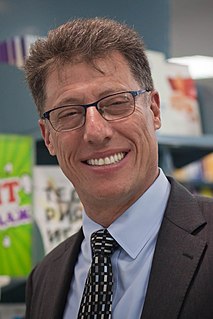A Quote by Peter Thiel
From my perspective, I think the question of how we build a better future is an extremely important overarching question, and I think it's become obscured from us because we no longer think it's possible to have a meaningful conversation about the future.
Related Quotes
I think morality is more important than ever before. As we gain more power, the question of what we do with it becomes more and more crucial, and we are very close to really having divine powers of creation and destruction. The future of the entire ecological system and the future of the whole of life is really now in our hands. And what to do with it is an ethical question and also a scientific question.
There are two kinds of people: one who goes on thinking about the future, not bothering about the present at all. That future is not going to come, that future is just a fool's imagination. I don't think about the future. I am a totally different kind of person. I don't think about the future at all, it is irrelevant.
I think what I've tried to do is make the world a better place. I think that's what's really important. Nobody remembers who sold the most togas in Rome. In terms of legacy, people remember the great villains more than they remember the great heroes. So I think how you feel about yourself is the most significant question. What do you say about yourself when you put your head on the pillow? Are you really proud of what you're doing and the way you're doing it? I think it's really a fundamental question.
I think communities of faith are extremely important in this question. I think that all faith communities share a common and unusual distinction in our time of being the only institutions left that can posit some goal other than accumulation for human existence. I think that's enormously important because it is that drive for consumption more than anything else that fuels the environmental devastation around us.
From a client perspective, I really think the work Microsoft's doing with Surface, with HoloLens, with Xbox, that stuff's absolutely essential to the company's future. Because innovation in the future will either be from the cloud out to all devices, or from devices as supported by software in the cloud. I think it's important for Microsoft to participate both ways.
We cannot create blueprint for future society, but it is good to think about that. It is good to have in mind a goal. It is constructive, it is helpful, it is healthy, to think about what future society might be like, because then it guides you somewhat what you are doing today, but only so long as this discussions about future society don't become obstacles to working towards this future society. Otherwise you can spend discussing this utopian possibility versus that utopian possibility, and in the mean time you are not acting in a way that would bring you closer to that.



































